This article was medically reviewed by Sarah Gehrke, RN, MS. Sarah Gehrke is a Registered Nurse and Licensed Massage Therapist in Texas. Sarah has over 10 years of experience teaching and practicing phlebotomy and intravenous (IV) therapy using physical, psychological, and emotional support. She received her Massage Therapist License from the Amarillo Massage Therapy Institute in 2008 and a M.S. in Nursing from the University of Phoenix in 2013.
There are 11 references cited in this article, which can be found at the bottom of the page.
This article has been viewed 31,535 times.
Dyscalculia is a genetically inherited learning disability which can make mathematical tasks difficult. Depending on the nature of your dyscalculia, the exact difficulties you might experience will vary. However, anyone who has been diagnosed with dyscalculia will have a noticeable difficulty when working with math, numbers or sequencing.[1] Thankfully, there are many ways for you to cope with dyscalculia and reduce the impact that it has on your life.
Steps
Helping a Child with Dyscalculia
-
1Offer support and encouragement. Dyscalculia can cause a lot of anxiety and self-esteem issues for children who suffer from the disorder. They may feel that they are unable to do math at all or that their peers are too far ahead for them to catch up with. Whenever you are helping a child deal with dyscalculia, you'll want to help ease any anxieties about math and help them see that they can overcome the difficulties of this disorder.[2]
- It's a good idea to acknowledge how difficult math can be for the child and talk to them about dyscalculia.
- Offering praise whenever a child attempts to work on math assignments can reduce anxiety and boost self-esteem.
- Focusing on a child's strengths can be a good way to help them see that they have plenty of talents to be proud of.
-
2Practice math outside of school. As you go about your day with a dyscalculic child, try to ask them basic questions about math or numbers. Keeping them engaged in this way will help them get in plenty of practice and become more familiar with mathematical concepts. Try some of these examples to help keep a child practicing and working to overcome their dyscalculia.[3]
- If you pass a clock, you can try asking them what time it is.
- Try asking the child to count out exact change for you when buying something.
- If you're on a walk with the child, ask them to count things that you might see. For example, you can ask them to count the number of dogs in a dog park or how many cars are parked near you.
Advertisement -
3Play math based games. There are plenty of games that you can play with a dyscalculic child to help them practice and improve their math-based skills. Many of these games involve simple mathematical questions and will help expose your child to numerological concepts that they might be struggling with. Try looking over some of these examples of math based games for some fun ways to help your child deal with dyscalculia:[4]
- Many board games will require you to count and move a certain number of spaces.
- You can play numerical matching games like dominoes or go fish.
- Games like Monopoly can provide some extra counting practice.
- There are many apps available the can help your child practice their math skills as they play.
-
4Go through homework assignments together. Working with a dyscalculic child to complete their math homework can be a great opportunity to help them with their disorder. Offer plenty of positive feedback and let your child know what they get right. You should also try to point out parts they made a mistake on and allow them to make a correction. Stay positive and supportive as you work together to complete the assignment.[5] [6]
- Let the child make their own corrections. Ask them why they think a problem needs correcting and how they plan on fixing it.
- Ask your child about their reasoning behind their solutions.
- Even if an answer is wrong, keep positive and help your child make any necessary corrections.
-
5Talk to your child's school. Many schools will be happy to work with your dyscalculic child and their needs. Schools may also provide neuropsychological evaluation to diagnose dyscalculia. Depending on your child's school and local laws, the services offered to your child may differ. Talk with your child's school to learn more.[7]
- Inform your school if your child has already been diagnosed with dyscalculia.
- Your child may be assigned a school tutor who will provide extra help with math.
- Your child may be given their own study plan, which will be built around their unique needs.
-
6Consider hiring a private tutor. If you want to give your child some extra help, you may want to hire a private tutor. Tutors will meet with your child regularly, offering lessons that can help your them to learn mathematical skills and overcome their dyscalculia.
- Your tutor should specialize in working with children with learning disabilities.
- Your tutor should be aware of your child's dyscalculia.
- Ask someone at your child's school if they know of any tutors.
-
7Practice math with your child. Left unchecked, your child's dyscalculia will not improve. However, regular practice can go a long way in avoiding the negative effects of dyscalculia. Make sure you are helping your child with their math lessons on a regular basis to help them learn and overcome their Dyscalculia.
- Try to practice for at least 10 minutes a day.
- Regular practice is best.
- Work at your child's pace whenever you help them practice their mathematics.
- Your child may view numbers and math differently than most people. Work with your child's own concepts of math to help them build their skills.
Working to Overcome Your Dyscalculia
-
1Keep a calculator handy. For many dyscalculics, doing any math or arithmetic mentally is a serious challenge. To help reduce the difficulty of mental mathematics, it's a good idea to carry a calculator with you. Your calculator will help you to remember the numbers you are working with and produce an accurate solution to the problem you're solving.[8]
- A simple pocket calculator could help with basic, daily math.
- Most cell phones will have a basic calculator app.
-
2Try using graph paper to organize your mathematics. If you find it difficult to keep track of the parts of an equation, you may want to use graph paper. Using graph paper can help keep each part of your equation in order and can also help you to isolate difficult sections. Try using graph paper whenever you are doing arithmetic or mathematics to make the problems a bit easier to work with. [9]
- Keep each number or operator in a square on the graph paper.
- Keep equations in the same row.
- Keep numbers in the correct column, aligning them with the value place.
-
3Use colors to identify different parts of an equation. If you need some help keeping track of your equations, try getting a box of colored pencils or highlighters. Color coding your math problems can be a simple way to help you keep track of the various elements in the problem. You can use whichever colors you like, so long as they help you remember the parts of the equation.[10]
- Each operator should get its own unique color.
- Number groups can be given a color. For example, 1 and 2 in the equation 1+2=3 could be colored red, while the sum of 3 could be blue.
- You can make a small color key to help remind you of which colors you've assigned.
-
4Create and use reference sheets. Many dyscalculics have difficulties memorizing formulas or parts of the equations they are working with. If you have trouble remembering how certain numbers, equations or operations act, you can try making some reference cards. These cards can help you quickly recall how to handle a difficult part of your mathematical work. [11]
- You might try creating a large sheet that contains many references.
- You could make smaller reference note cards that contain single references to specific formulas.
- You can carry these reference cards with you to provide quick help to math problems.
-
5Keep reference books handy. Although you may be able to create some useful reference cards, you might not be able to write down everything you need on them. Because of this, it's a good idea to have a few mathematical references or textbooks handy. These books will allow you to look up any issues you may be having trouble with and can help you to solve difficult problems.[12]
-
6Try using online tools to practice your math skills. There are many mathematical tools and learning opportunities available online for you to use. These tools will help you practice your existing math skills and acquire new ones. Whatever level of skill you are currently at, try using online tools and courses to help you overcome dyscalculia and build your mathematical capabilities.[13]
- Many online tools and courses are free.
- The wide range of courses will allow anyone at any skill level to practice.
- Some courses and tools are developed specifically for people with dyscalculia.
- You can find a list of courses and tools at http://www.dyscalculia.org/math-tools
-
7Approach math problems from different angles. If you are having trouble with a concept or specific problem, looking at it from another perspective might help you get past it. Seeing the problem in a new way can help you rethink the question and find the solution. The next time you're stuck on a math problem, try thinking about it a bit differently to help you successfully solve it.[14]
- Memorizing formulas or tables can be a serious challenge for most dyscalculics.
- Focusing on the concepts behind mathematical operations can be more helpful.
- For example, memorizing a multiplication table might be extremely difficult. It might be easier to understand the underlying concept behind multiplication. Take the example equation 5 x 2 = 10. If the 10 was doubled, that would mean 5 x 4 = 20.
Recognizing Dyscalculia
-
1Recognize the five types of dyscalculia. Although dyscalculia is generally described as being a singular learning disorder, there are actually five subtypes. These subtypes will all have their own unique symptoms and conditions. Knowing these subtypes can help you plan for your specific needs and successfully cope with dyscalculia.
- Type 1 dyscalculics may be able to grasp some basic functions of math, but will have difficulties with higher mathematics.
- Type 2 dyscalculics are capable of doing mathematical operations, but may take much longer than their peers.
- Type 3 dyscalculics will have significant difficulty understanding time or sequence. This type of dyscalculia is rare.
- Type 4 dyscalculics have troubles with memory, which can affect their mathematical capabilities.
- Type 5 dyscalculics cannot grasp numbers conceptually and will have difficulties connecting them to real world objects or situations.
-
2Look for the symptoms of dyscalculia. Dyscalculia is not simply having trouble doing math. Dyscalculics have a learning disorder and will often display specific symptoms and traits regarding math or numbers. You will need to speak with your health care provider or a psychologist to learn if you have a case of dyscalculia. However, discovering some of these common traits associated with dyscalculia can help you work with your doctor to learn more about your condition:
- Difficulties understanding mathematical operations and concepts such as decimal places, doing sums, making change or counting money.
- Troubles with reasoning, making it difficult to follow processes or understand how abstract ideas relate to concrete examples.
- Issues memorizing the meaning of mathematical symbols, formulas or instructions in math textbooks.
- A large gap between your performance in math-related and non-mathematical subjects. People with dyscalculia may do well in school overall--especially in non-mathematical subjects such as history or literature--but their grades will be disproportionately poor in math or math-based classes like algebra or physics.
-
3Get tested for dyscalculia. Cases of dyscalculia will be diagnosed by a psychologist. There have been tests developed that can help discover which type of dyscalculia you may have, as well as the severity of it. Talk with your health care provider to learn more about dyscalculia testing.[15] [16]
- Your school may offer psychological examination services.
- Many initial tests will aim to rule out other conditions that could be causing any difficulty grasping mathematical concepts.
References
- ↑ http://www.mayoclinic.org/healthy-lifestyle/childrens-health/in-depth/learning-disorders/art-20046105
- ↑ http://childmind.org/article/help-kids-dyscalculia/
- ↑ https://www.drugs.com/cg/dyscalculia-in-children.html
- ↑ https://www.understood.org/en/school-learning/learning-at-home/games-skillbuilders/how-games-can-help-kids-who-struggle-with-math
- ↑ https://www.drugs.com/cg/dyscalculia-in-children.html
- ↑ http://dyscalculiaservices.com/?page_id=128
- ↑ http://www.mayoclinic.org/healthy-lifestyle/childrens-health/in-depth/learning-disorders/art-20046105?pg=2
- ↑ https://www.tcd.ie/disability/assets/doc/Word%20Docs/AST%20booklets/Subject%20specific/nursing/Nursing_tool_kitf.pdf
- ↑ http://www.dyscalculia.org/dyscalculia/math-anxiety
- ↑ http://www.dyscalculia.org/dyscalculia/math-anxiety
- ↑ http://www.dyscalculia.org/dyscalculia/math-anxiety
- ↑ https://www.tcd.ie/disability/assets/doc/Word%20Docs/AST%20booklets/Subject%20specific/nursing/Nursing_tool_kitf.pdf
- ↑ http://www.dyscalculia.org/math-tools
- ↑ http://www.ldonline.org/article/13709?theme=print
- ↑ http://www.mayoclinic.org/healthy-lifestyle/childrens-health/in-depth/learning-disorders/art-20046105?pg=2
- ↑ http://www.ncbi.nlm.nih.gov/pmc/articles/PMC3514770/


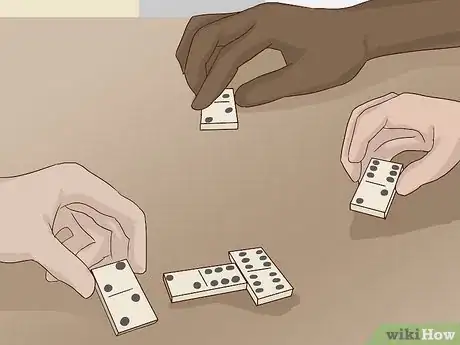




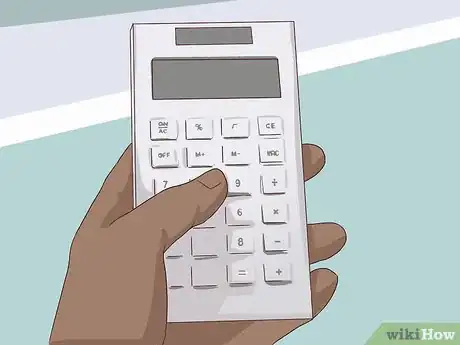
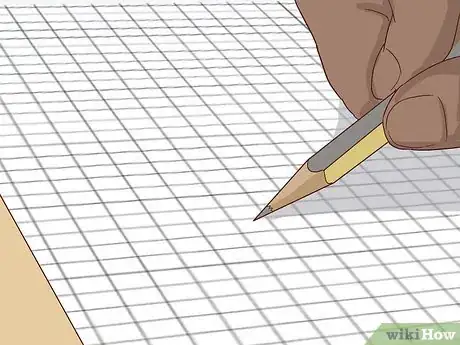
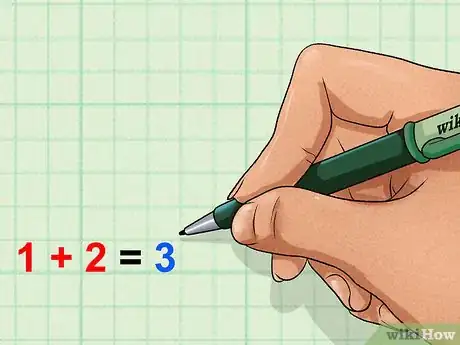
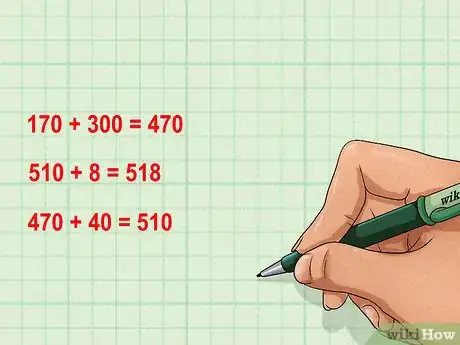
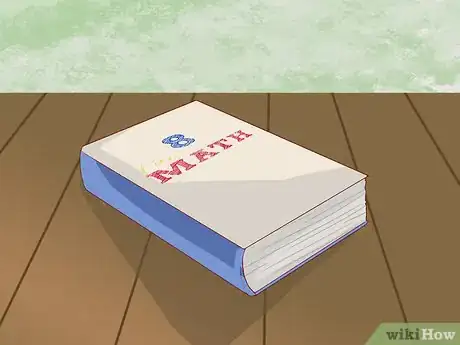

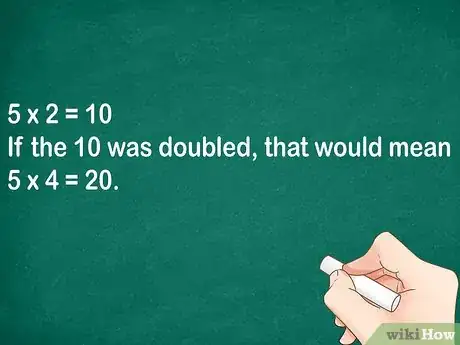

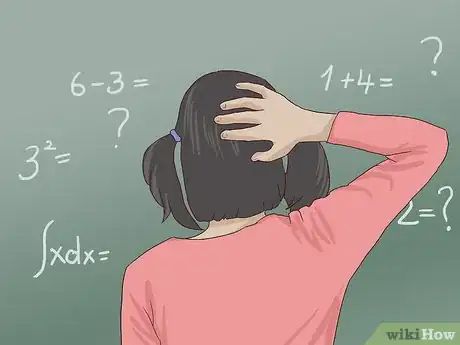

























































Medical Disclaimer
The content of this article is not intended to be a substitute for professional medical advice, examination, diagnosis, or treatment. You should always contact your doctor or other qualified healthcare professional before starting, changing, or stopping any kind of health treatment.
Read More...